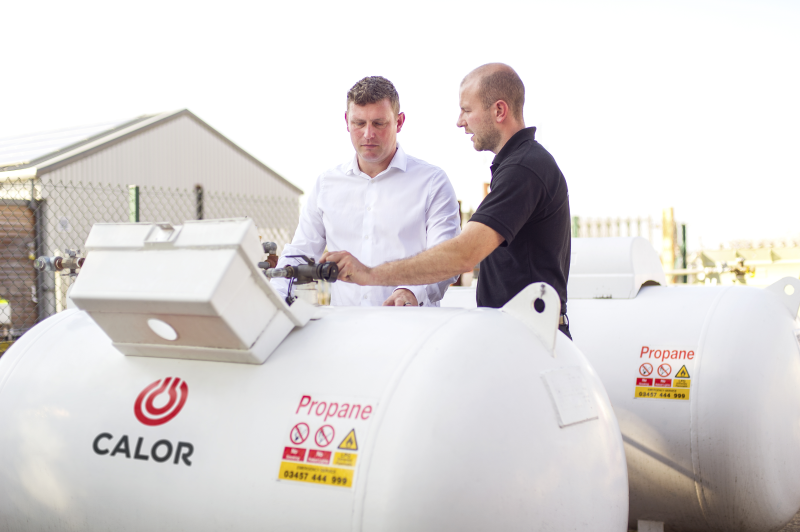 Calor, one of the UK’s leading suppliers of liquefied petroleum gas (LPG), has welcomed the government’s Clean Growth Strategy and its commitment to cutting carbon emissions for rural businesses located off the mains gas grid.
Calor, one of the UK’s leading suppliers of liquefied petroleum gas (LPG), has welcomed the government’s Clean Growth Strategy and its commitment to cutting carbon emissions for rural businesses located off the mains gas grid.
The strategy sets out proposals for decarbonising all sectors of the UK economy throughout the 2020s and, with its position as the lowest carbon-emitting off-grid fossil fuel available on the market, LPG is set to play a vital role in helping to achieve this.
Backed by a well-established supply infrastructure throughout the UK, while being cost-effective and reliable too, LPG offers a viable alternative to businesses looking to switch from oil boilers to fuel their operations.
Furthermore, the Clean Growth Strategy arrives as Calor prepares to be one of the first energy companies to introduce bioLPG to the UK market. Due to be available in early 2018, bioLPG is chemically identical to conventional LPG but created from renewable, ethically sourced feedstocks. The fact it is chemically identical means it is a drop-in renewable fuel, so there is no need for businesses currently using LPG to invest in new equipment or appliances.
Aligned with the government’s strategy to decarbonise the UK over the coming years, bioLPG provides an exciting opportunity for off-grid businesses to improve their environmental credentials further still, and looks set to establish itself as a key energy source for the future.
When compared with other off-grid fuels, LPG’s sustainability credentials are well documented. LPG emits 20 per cent less CO2 per kWh than heating oil, as well as producing fewer harmful nitrogen oxides (NOx). BioLPG will deliver even lower carbon emissions – up to 38 per cent, depending on the proportion of waste materials in the fuel – without reducing performance.
Paul Blacklock, head of strategy and corporate affairs at Calor, explained: “The proposals put forward as part of the Clean Growth Strategy offer the most important developments in the off-grid market since electrification in the 1930s.
“As the government looks to phase out oil heating from 2020 onwards, and with most commercial boilers typically having a lifespan of between 15 to 20 years, it is worth determining how well a boiler will meet these decarbonisation targets in the future. Whether you’re a business planning an upgrade to your current boiler installation or thinking about spending valuable capital on new technology, it makes good commercial sense to invest in a fuel that is future-proofed.
“This is where LPG and bioLPG comes in, offering a proven solution. Many commercial premises based off the mains gas grid are already reaping the rewards of investing in LPG, and initiatives such as the Clean Growth Strategy look set to make these benefits only clearer still.
“We believe LPG will play a key role in helping the country to meet its lower carbon commitments and, with energy sources such as bioLPG already imminent, the opportunities for LPG as a fuel of the future is secure.”



